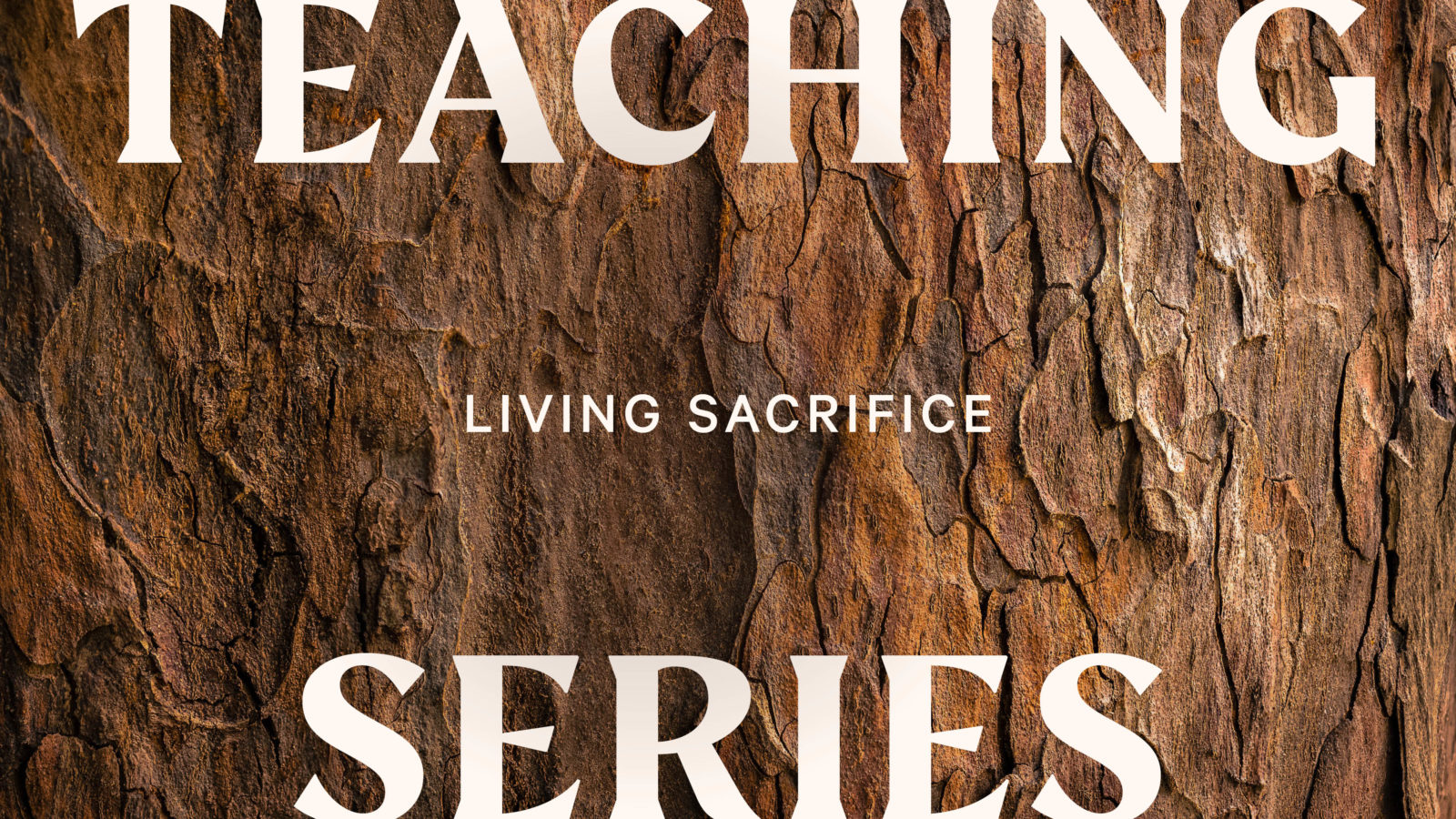Living Sacrifice

If you run a google image search for the word ‘worship’ you will have to scroll a good few pages to find anything other than photos of raised hands, guitars, and crowds singing in moodily-lit auditoriums. This seems strange to me. And it would have seemed very strange to the writers of the New Testament.
God’s people have always used music as a core part of how they engage with Him and practice their faith. Think about the many songs recorded in Scripture, whether at moments of triumph and celebration, or in the collection known as The Psalms. And along with the singing of these songs, God’s people have always used their bodies to express their praise, in clapping, dancing, kneeling, and raising hands.
There is a strong link between worship and music. But that is only part of the story, and when we limit our definition of worship to simply the singing of songs, we miss out on a huge part of what true worship is all about. Worship is about giving our full devotion to something or someone. The Bible makes the claim that we could sing the top 100 worship songs until we’re blue in the face, but if our singing isn’t accompanied by humility, compassion, generosity, caring for the poor, pursuing justice, and doing all things in love, then our ‘worship’ is like an unpleasant noise, ringing in the ears of God (e.g. Amos 5:21-24; Isaiah 29:13; 58:1-14; James 1:27; 1 Corinthians 13:1-3).
True worship is holistic. It’s about honouring God with every part of our lives: our thoughts, attitudes, energy, the use of our time, skills, resources – and yes, our songs! As one recent worship song puts it:
“Oh! Christ be magnified
From the altar of my life
Christ be magnified in me.”
Paul’s letter to the Romans is a brilliant exploration of the gospel, written to a church that was deeply divided. In 49AD, Emperor Claudius had expelled Jews from Rome, including many Jewish followers of Jesus. When they were allowed back five years later, they found that in their absence the church had become less and less Jewish. So deep divisions arose in the church, including disagreements over the relationship between Jewish and Christian believers, and the necessity of practices like circumcision, food laws, and the Sabbath.
So Paul, hoping to visit in person on his way to Spain (Romans 15:19-32; Acts 19:21), wrote this letter to help the church work through some of their theological and practical issues. In it, he argues that the church should be united in love for one another, because Jews and Gentiles are made one through the life, death and resurrection of Jesus. In short:
- The good news of Jesus reveals God’s righteousness… (ch1-4)
- and creates a new humanity… (ch5-8)
- which fulfils God’s promise to Israel… (ch9-11)
- and unifies the church (ch12-16).
Romans 1-11 are rich and complex, as Paul makes a sweeping argument, tracing many of the key themes of Scripture. Then chapter 12 begins:
“I urge you, brothers and sisters, in view of God’s mercy, to offer your bodies as a living sacrifice, holy and pleasing to God – this is your true and proper worship.” (Romans 12:1)
Worship, as Paul understood it, is not something that can be confined to a fixed slot on a Sunday morning, where we sing (or currently, hum through masks!). True worship is about constantly laying down our lives in service to God, and love for one another.
All our lives should be a worshipful response to the death and resurrection of Jesus. The church should be a community characterised by a love that is not superficial, but sincere. That is not a new idea that Paul came up with! It is actually the fulfilment of God’s intention for us as His children. We are to love God and love our neighbour (Leviticus 19:18; Deuteronomy 6:4-5; Matthew 22:35-40).
That is true worship.
In our current sermon series, which we have called Living Sacrifice, we are going to work through Romans 12, unpacking some of the practical implications of what it means to think of the whole of our lives as worship. We will consider:
- how our minds are renewed
- how we should use our gifts and skills in the context of the church
- how to honour one another
- how to keep our spiritual zeal alive
- how to walk together as a community, through seasons of rejoicing and mourning
- the importance of hospitality
- how to live at peace in the midst of disagreement
We hope this will be a challenging and practical series, to help us build a worshipful community that honours God and can be a blessing to our city.
Each week we will produce resources that you can work through in your Connect Group. We would really encourage you to use these when you gather, because the ideas in this chapter will only be powerful and effective if we put them into practice, and our Connect Groups are ideal places to learn and grow.
As we go through the series, no doubt we will recommend various books on the different themes, but if you would like to take this opportunity to dig into the book of Romans, then you may find some of the following helpful.
The Bible Project have a two-part video which will give you a helpful overview of the book. Douglas Moo’s NIV Application Commentary is full of insights (or if you fancy something really meaty, check out his full length technical commentary… but be warned, it’s a bit of a beast!). Or if you want something a bit more devotional to help you work through the book in bite-sized chunks, then you may enjoy God is For Us by Simon Ponsonby, Romans for Everyone parts one and two by Tom Wright, or Straight to the Heart of Romans by Phil Moore
And would you join us in praying as we work through this series, that we would increasingly become a church that worships God truly, and represents Him beautifully to this city we love.



